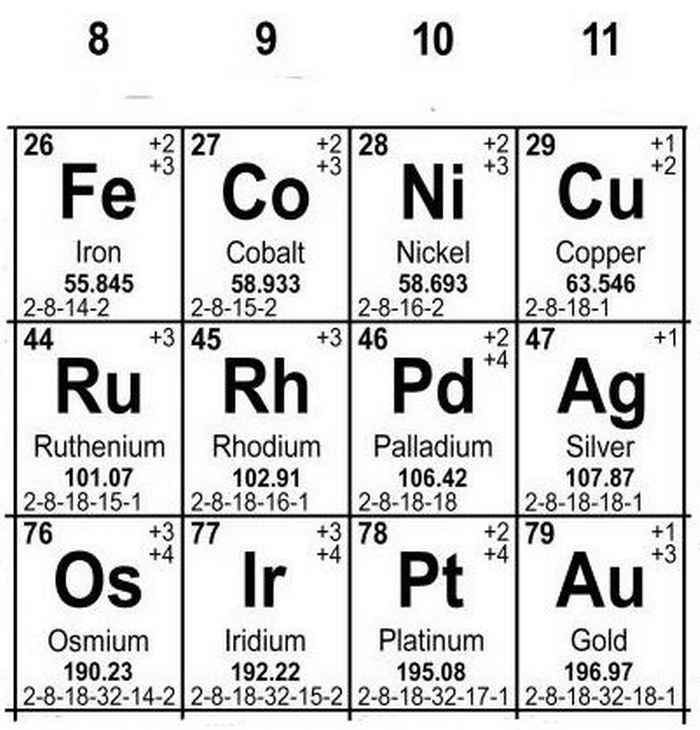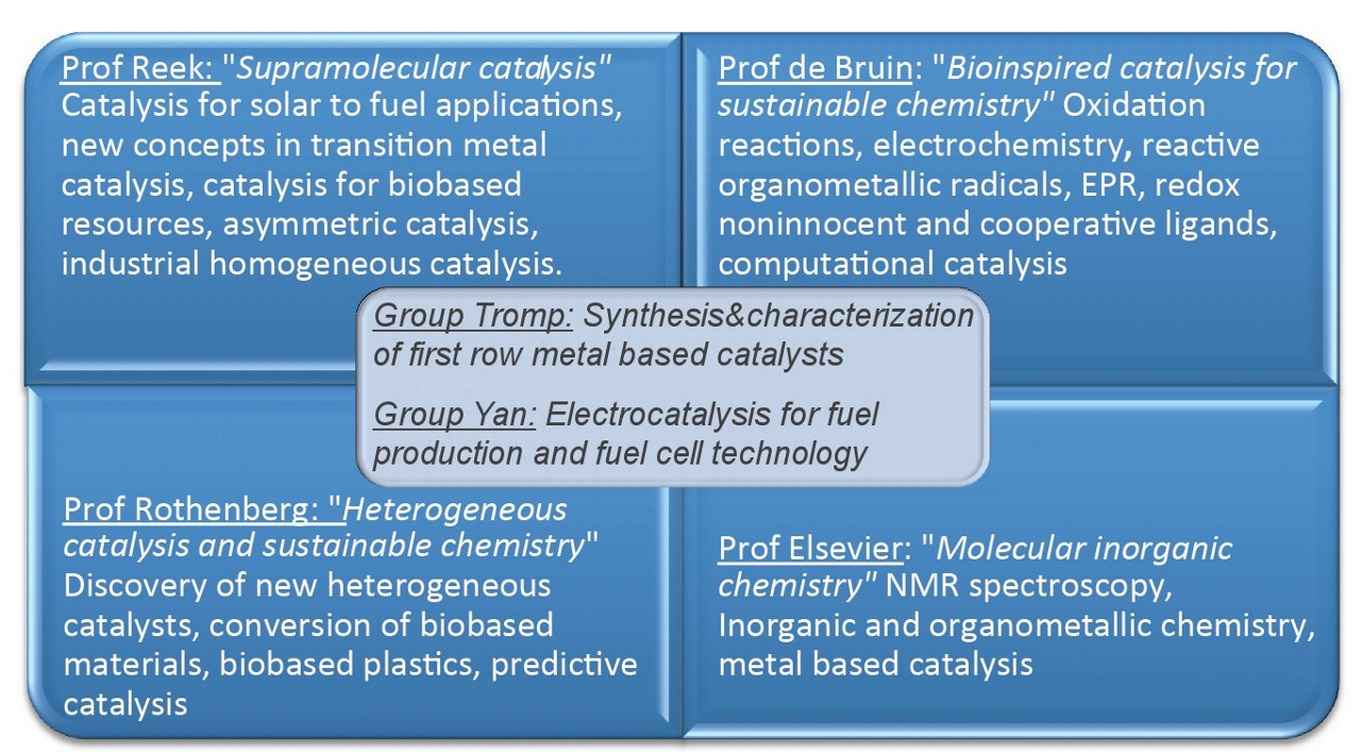Towards an understanding of crucial chemistry
Abundant transition metals
Building on a strong base of expertise in the catalytic performance of reactive less abundant metals, the RPA Sustaineble Chemistry develops new insights in the field of abundant metal complexes (containing Fe, Cu, Ni, etc.). This will enable knowledge based design of new catalytic systems.

Detailed knowledge facilitates breakthroughs in the development of new efficient abundantly available (cheap) catalysts for use in biomass conversion, cheaper and more efficient conversion of traditional (fossil) feedstocks and advanced fuel cell technologies.
Fuel cell technology
In addition, electrocatalysis will become increasingly important for the storage and use of green energy. This is not only relevant to the efficient harvesting of energy from sunlight and the subsequent conversion into fuel. Of equal importance is the efficient conversion of fuel into electricity using fuel cells. The research on abundant metal catalysis and fuel cells is expected to lead to breakthroughs in (reversed) fuel cell technology with cheap catalytic electrodes based on abundant metals.

Holistic view
Adding to this is the expertise of professor Van der Zwaan in the area of the life cycle analysis of sustainable processes. In collaboration with the key chairs of the sustainable chemistry, he offers a holistic view for the conversion of biorenewables to chemicals using all key catalysis technologies available. This completely novel holistic approach is of relevance to both science and society.